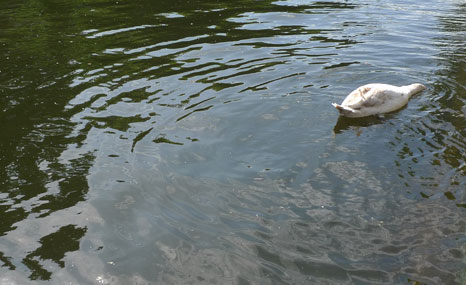“- i too would like to know.
– this not knowing is rather carefree, is it not?
– i’m afraid it may be presumptuous. we are always ready to believe ourselves destined for what we seek by a more intimate, a more significant relation than knowing. knowledge effaces the one who knows. disinterested passion, modesty, invisibility: these are what we risk losing by not just knowing.
– but we will also lose certitude, a proud assurance. behind the face of the man of science, impersonal and as though effaced, there is the terrible flame of absolute knowledge.
– perhaps. nonetheless, this flame does not fail to glimmer everywhere there are eyes. i see it even in the unseeing eyes of statues. uncertainty does not suffice to render modest men’s efforts. but i admit that the ignorance in question here is of a particular kind. there are those who seek, looking to find-even knowing they will almost necessarily find something other than what they are searching for. there are others whose research is precisely without an object.
– i remember that the verb to find [trouver] does not first of all mean ‘to find,’ in the sense of a practical or scientific result. to find is to turn, to take a turn about, to go around. to come up with a song is to turn a melodic movement, to make it turn. no idea here of a goal, still less of a stopping. to find is almost exactly the same word as to ‘seek’ [chercher], which means to ‘take a turn around.’
– to find, to search for, to turn, to go around: yes, these are words indicating movement, but always circular. it is as though the sense of searching or research lay in its necessary inflection in turning. ‘to find’ is inscribed upon the great celestial ‘vault’ that gave us the first models of the unmoved mover. to find is to seek in relation to the center that is, properly speaking, what cannot be found.
– the center allows finding and turning, but the center is not to be found. research would be, perhaps, that rash seeking determined always to reach the center instead of being content to act in response to its point of reference.
– a hasty conclusion all the same. it is true that the turning movement of research resembles the movement of a dog that, when its prey is motionless and menacing, believes it has captured its prey by encircling it, while in fact it remains solely under the fascination of the center to whose attraction it submits.
– the center, as center, is always safe.
– searching and error, then, would be akin. to err is to turn and to return, to give oneself up to the magic of the detour. one who goes astray, who has left the protection of the center, turns about, himself adrift and subject to the center, and no longer guarded by it.
– more accurately, he turns about-a verb without complement; he does not turn around some thing or even around nothing; the center is no longer the immobile spur, the point of opening that secretly clears the space of advance. one who goes astray moves steadily ahead and stays at the same point; he exhausts himself while under way, not advancing, not stopping.
– and he is not at the same point, although being there by returning. this is worth considering. the return effaces the point of departure; being without a path, error is that arid force that uproots the landscape, ravages the wilderness, ruins the site.
– an advance in the frontier regions and along the frontier of the march.
– above all, an advance that opens no path and corresponds to no opening; error designates a strange space where the hiding-showing movement of things has lost its directing force. where i am through error there no longer reigns either the benevolence of welcome or the rigor, itself reassuring, of exclusion.”
– maurice blanchot, the infinite conversation


and in all my gravest errors, to where, to whom should i turn?